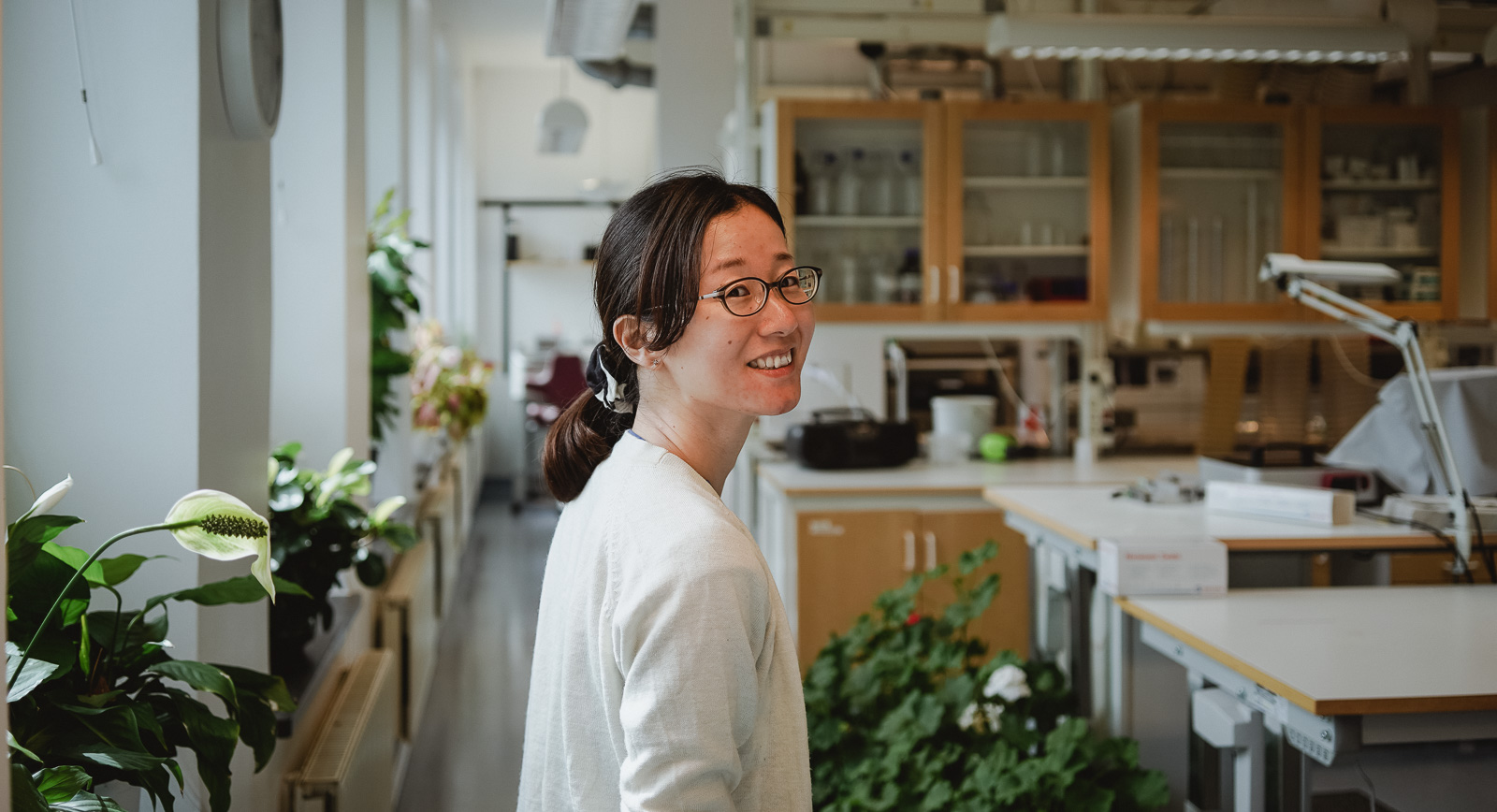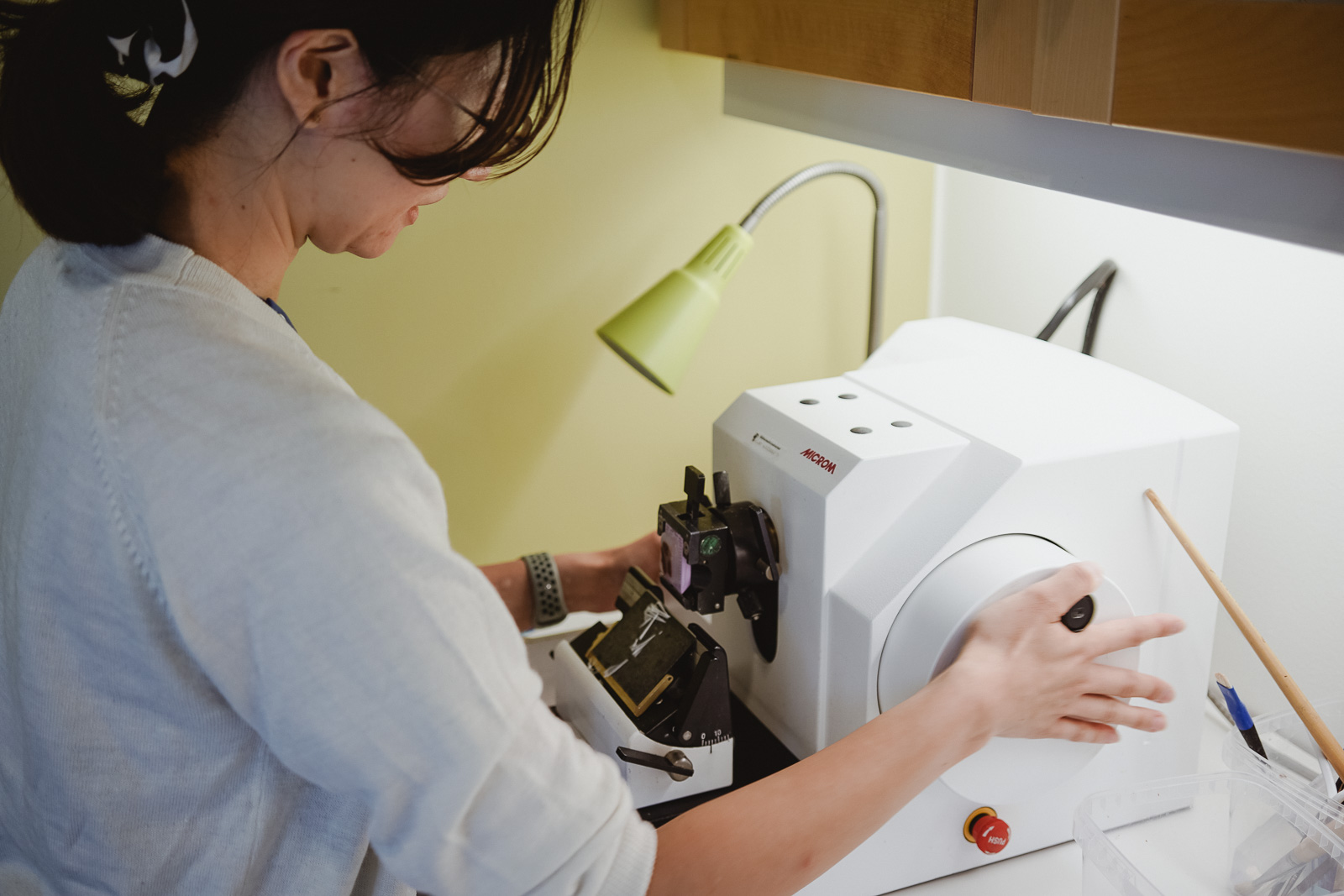Kie Horioka
Karolinska Institutet, Postdoctoral researcher

We interviewed postdoctoral researcher Kie Horioka, who visited Sweden through the JSPS Overseas Challenge Program for Young Researchers. She conducted her research at Karolinska Institutet from February 2020 to September 2020.
What are you currently researching in Sweden?
Platelets, which are involved in the bleeding arrest, are activated when they are exposed to low temperatures in vitro. Based on this phenomenon, I hypothesized that platelets might also be activated in the human body exposed to hypothermia. My research goal is to determine the mechanism of platelet activation during hypothermia in Sweden, using samples taken from autopsy cases of frozen death.
How did you get interested in forensic medicine?
In forensic medicine, various examinations are performed as same as they are performed on patients in a hospital. The results obtained from the examinations are very important to know the cause of death. As a clinical laboratory technologist, I was interested in solving the problem, “Why people die?”. Therefore, I decided to pursue a career in forensic medicine.
Why did you apply to this program?
Overseas Challenge Program for Young Researchers of JSPS is a new grant program that was launched in 2017. I first learned about this program when I was looking for a postdoctoral research grant for overseas research. I applied for this program because I thought it was the best way to take the first step towards studying abroad, and it was a good point that the adoption rate of this program is relatively high.
Why did you choose your current institution to conduct your research?
I talked to a Finnish forensic scientist at the International Forensic Society conference held in Toronto four years ago. I found the level and quality of forensic research in the Nordic countries to be very high. The next year, I attended the Nordic Conference of Forensic Medicine, and I asked the Finnish forensic scientist to give me a tour of the forensic facilities. At the same time, she introduced some researchers to me in forensic science at the University of Helsinki. This opportunity made my interest in Scandinavian forensic science even stronger. At the meeting, scientists from the department of forensic science at Karolinska Institutet presented their data about the diagnostic markers for frozen death. I thought that the need for research on frozen death in Sweden is substantial because it is a cold country. By chance, I saw a Japanese researcher at the conference who worked for the Swedish National Forensic Science Board and had a connection to the Karolinska Institutet.

Dr. Horioka slicing an autopsy sample.
Compared to Japan, what is your impression of the research environment in Sweden?
In Japan, the autopsy rate of unnatural death cases (those who died at home or outdoors) is approximately 12%, which is one of the lowest in developed countries. It is difficult to collect specimens for my research interests because autopsies and research are performed in each prefecture and university. On the other hand, the rate of autopsies is more than 90% in Sweden. Also, the Ministry of Forensic Science has been established as a national institution and shares information with the university. It makes it easier to obtain data and samples. I believe that Sweden has established an excellent system that makes research very efficient and practical.
What has been the most challenging in your research so far?
I started my research in Sweden in February 2020. Soon after I arrived here, the coronavirus infection spread in Europe, and many countries decided to go on lockdown. However, Sweden did not go into lockdown. The number of infected and dead people continued to rise in Sweden, and even some lab staffs were infected with coronavirus so that we had to face the unknown fear. The researchers studying abroad face a lot of difficulties to achieve their goal. However, the most challenging point at this time is to avoid the infection.
Finally, do you have any advice for young scientists who dream of going to Sweden?
It has been an extremely valuable experience for me to stay in Sweden. I believe that studying abroad is not only an important experience in achieving our research goals but also as an opportunity to think about how we should spend our life in the future. I loved Scandinavia, of course, but this stay made me love Sweden even more! I often had a FIKA with coffee and cinnamon rolls while looking at the beautiful city. FIKA is the best solution to both the problems and fatigue of research. I hope that all of you who are about to start your studies in Sweden will be able to enjoy a good life there.
Academic background
2012 Faculty of Health Sciences, School of Medicine, Hokkaido University/p>
2015 Graduate School of Health Sciences (Master's program), Hokkaido University
2020 Graduate School of Medicine (Doctor's program), Department of Medicine, Asahikawa Medical University
2020 Postdoc researcher, Division of Forensic medicine, Department of Oncology and Pathology, Karolinska Institute
